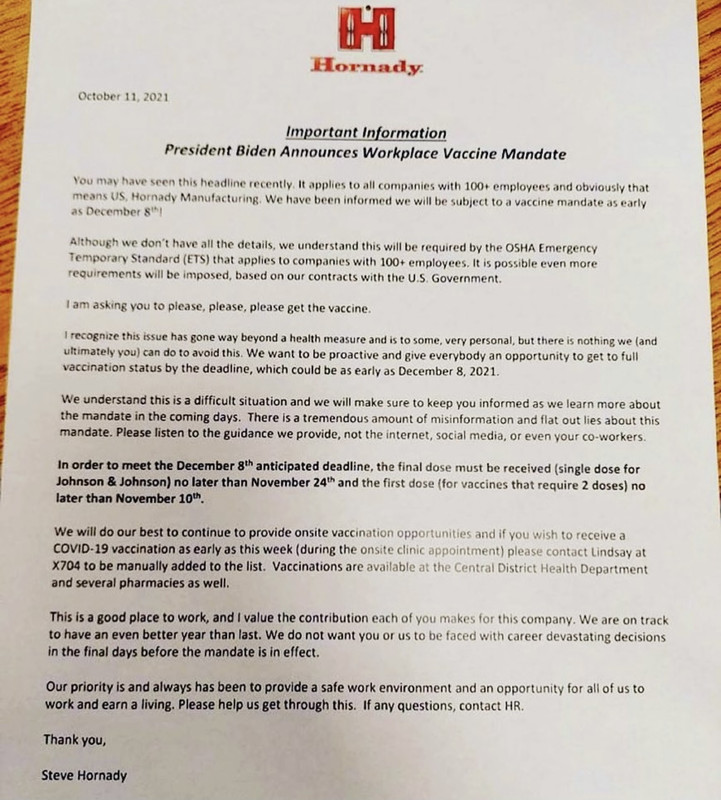The American Prospect.
At a glance, Americans appear to have a variety of ammunition companies to choose from: Remington, Winchester, Speer, CCI (Cascade Cartridge, Inc.), Federal Premium. Winchester bills itself as “The American Legend” and has been in business for over 150 years, while Remington has been making guns and ammo for over 200 years and states that their company is as “boundless as the American spirit.” These companies associate their brands with freedom, independence, and toughness. What most customers do not know, however, is that they are all owned by the same two entities: Olin Corporation and Vista Outdoor.
This consolidation in the small arms ammunition market by corporations and private equity firms is hurting businesses, consumers, and workers. And it’s producing a massive shortage, just as demand for ammunition picks up. It looks like the problem could get worse, not only in the commercial shooting market, but where it really matters: for our national security.
He goes on to talk about the ability of the FBI, DHS and others to get ammunition, something I don’t care one whit about. I’d prefer they have none.
But due to consolidation within the industry, only a couple of incumbent companies have that ability to make it through low-demand periods. When demand surges, they are no longer forced to produce, but can focus instead on “efficiencies.” They can raise prices and generate shortages, knowing that no one else exists to meet the demand that they cannot or will not fill.
Such refusals to invest in increased capacity can clearly be seen as Vista’s plan over the last few years. According to their annual reports, Vista is focused on “long-term shareholder value,” and when they have influxes of cash, they acquire more companies that “deliver top-line growth … within one year of purchase.” They do not build more plants, even though they project more long-term increased demand; building a plant to increase capacity is a long-term project, one that does not return a profit in a year, much less a quarter.
[ … ]
Remington’s story involves some twists and turns and financial engineering. In 2007, private equity firm Cerberus Capital Management bought the then-thriving Remington, using it as a piggy bank. To execute the buyout, Remington borrowed hundreds of millions of dollars it immediately handed over to Cerberus, which meant that Cerberus would make money on the deal no matter whether Remington succeeded.
Initially, Cerberus made “hundreds of millions of dollars” from Remington, due to high gun sales during the Obama years. But when demand decreased after Donald Trump’s election, Remington was forced to file for bankruptcy in 2018. The firm restructured its debt and continued operating under new creditors, but due to continued mismanagement and lawsuits, Remington filed for bankruptcy again in 2020. Vista Outdoors bought Remington’s ammunition brand later that year.
Winchester’s story is more straightforward. Chemical producer Olin Corporation bought Winchester in 1931 and is now “a leading U.S. manufacturer of ammunition.” Olin’s most recent annual report revealed that Winchester sales increased from $665.5 million in 2019 to $927.6 million in 2020. This increase is reportedly due to “higher commercial and military sales, which included ammunition produced at Lake City, and higher commercial ammunition pricing.” Olin won a $28.3 million, ten-year contract to operate the Department of Defense’s Lake City Army Ammunition Plant in September of 2019. It also won contracts with the Secret Service, Customs and Border Protection, and the FBI.
It’s certainly the case that the proliferation of law enforcement entities in America is one of the causes of ammunition prices.
On the whole, I think consolidation is a very bad thing. I did when Cerberus bought Remington (they set their sights on others as well), and I do now. I think it’s better to have many medium size and small companies.
This ensures competition and innovation, despite the fact that a large corporation can bring financial resources to bear on R&R. Corporations rarely focus on their employees, R&D or building. Rather, they focus on stock prices, dividends and returns.




